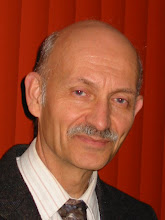Murray Rothbard's CONSPIRACY THEORY OF HISTORY – by Dan Fernandes
(From a talk by Alan Pyeatt at the Libertarian Party of East San Gabriel Valley Dinner Club in February of 2011)
How do you react when someone tells you that an event in history was the result of a conspiracy? Do you lean toward immediate doubt, thinking conspiracies are rare and unlikely? That reaction may be common, but according to Murray Rothbard (1926-1995), it is not justified. In Rothbard's view of history, a conspiracy by the parasitical ruling class perpetually exists to maintain and extend power over the majority productive class.
The conspiratorial ruling class inside government receives help from many co-conspirators outside government, people Rothbard refers to as “Court Intellectuals”. In the past, it was the clergy who filled this role. In modern times, people like college professors, media commentators, and business leaders are the co-conspirators.
A perpetual conspiracy by these advocates of big government is absolutely necessary because the people must be persuaded, against their own best interests, to donate wealth, and to eschew liberty, in order to support an intrusive, burdensome, and ever-expanding government. The conspirators do this by continuously conjuring up new “threats” to society, both real and imagined, that only the government can theoretically resolve. These perceived threats include foreign enemies, market failures, cultural failings, and most recently, environmental concerns. The conspirators also must conspire to cover up government failures, so that the people do not lose faith in their big government.
It is important to point out that a conspiratorial view of history provided much of the impetus for the natural rights theory found in the Cato Letters, which sparked the American Revolution. So it is likely that our country's founders would have agreed with Murray Rothbard's conspiratorial views. By conspiracy, we don't mean that a large number of people necessarily get together in the same room and agree to conspire. Rather, we mean all conspirators are aware that they themselves are falsifying or suppressing information and that many other like-minded people are doing the same, for some common purpose which would be considered evil by the people being deceived.
How can you tell if any specific conspiracy theory is true? Rothbard suggests that you strongly consider motives. That includes the power motives of the ruling class and their advisors, the power and economic motives of people such as bureaucrats and business leaders, and the ideological motives of people such as academic intellectuals and the news media. When motives to conspire are strong, a conspiracy is the most likely explanation of human action.
The proof of any theory is in how well it explains the real world. According to Rothbard, his conspiracy theory of history explains many historic events. For example, it explains how participants were drawn into World Wars I and II, and how U.S. foreign policy during that period was transformed from one of benign neutrality to one of becoming world policeman. I would add that it certainly explains climate change alarmism.
How can we best defend ourselves from conspiracies to expand government power? According to Rothbard, our best defense is the ideological ammunition supplied by people he calls radicals, or opposition intellectuals. And one of their best tools is to expose government conspiracies, not only in the present, but also through revisionist accounts of history. Rothbard himself was one such radical. Of course, an important element of pro-government propaganda is to discredit conspiracy theories, and to marginalize people who espouse them.
So the next time someone offers you a conspiracy theory, keep an open mind. Certainly, there are some unlikely conspiracy theories, but then again, many conspiracies have actually occurred. Truth is not so easy to determine, and there is no substitute for good judgment.



